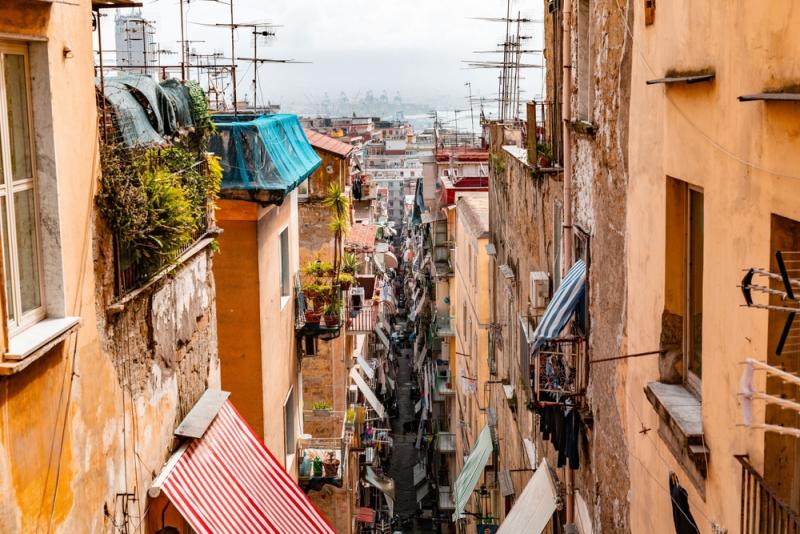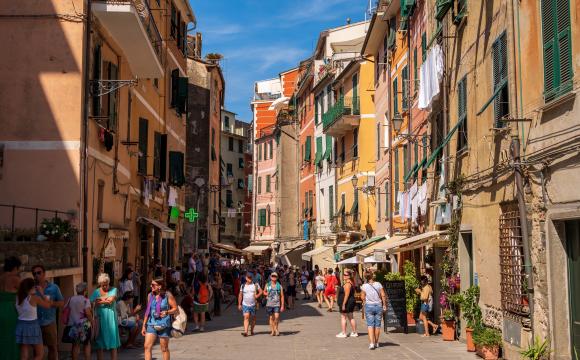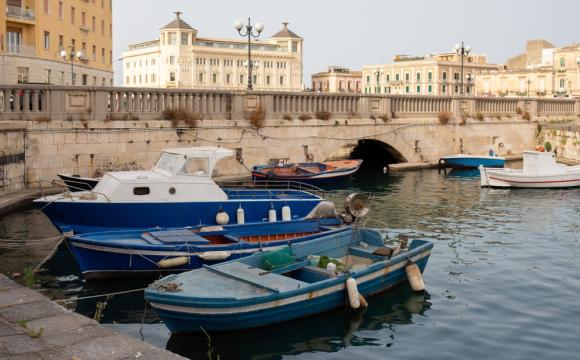A recent report by AirDNA, a leading provider of data and analytics for the short-term rental industry, revealed that rents for Italian vacation properties — from Naples to Venice — are rising nearly across the board.
AirDNA, on the request of Il Sole 24 Ore — Italy’s daily business and financial newspaper of record — collected and evaluated data from over 1.5 million property managers and hosts from short-term rental platforms such as Airbnb and VRBO (Expedia), looking at three categories: number of ads, occupancy rates and prices.
The analysis found that short-term rental prices in the northern cities of Turin and Milan have returned to pre-Covid levels, while those in Florence, Rome and Naples have soared by an average of 60%.
High-trafficked Venice, which is set to introduce an entry fee for day trippers on April 25, remains Italy’s priciest city to stay in overnight. This is the pre-pandemic status quo — except that now the average rental rate is just under €210 per night, compared to €138 in 2019.
Rome still has the highest number of short-term rental housing with 22,080 units (though that figure is down by -31% compared to 2019).
For sheer quantity of listings, Milan and Turin are the only major cities that have returned to 2019 levels, according to the study. 2023 was a headline year for tourism in both cities: Turin’s airport saw a 72% increase in foreign visitors compared to 2019, while Milan, partially in preparation for the 2026 Winter Olympic Games, has been distancing itself from its business-first reputation through projects like YesMilano, the municipality’s promotional arm for tourism. Notably, the Lombard capital saw a 48% increase in short-term accommodations from 2022 to 2023 — the highest jump on record — though the AirDNA study did not address the city’s heightened focus on tourism or suggest causation.
Meanwhile, in the tourist itinerary staple of Florence, short-term rentals have dropped by 25% compared to 2019 (from 12,820 to 9,560 units). But in 2023, the Tuscan capital saw a 20% increase compared to the previous year. The city recently introduced a non-retroactive ban prohibiting residential properties in the UNESCO World Heritage area from being used as short-term tourist rentals — a move that was contested by a consumer association and which Tuscany’s regional administrative court is set to address in early May.
The Florence short-term rental ban wasn’t the only regulatory change for the market announced in 2023. For 2024, the cedolare secca (a flat tax on dividends) will increase from 21% to 26% for owners of more than one short-lease apartment. The Ministry of Tourism is also set to introduce a CIN or national identification code to those who rent their properties for short-term stays of fewer than 30 days, but this is not yet in force.













